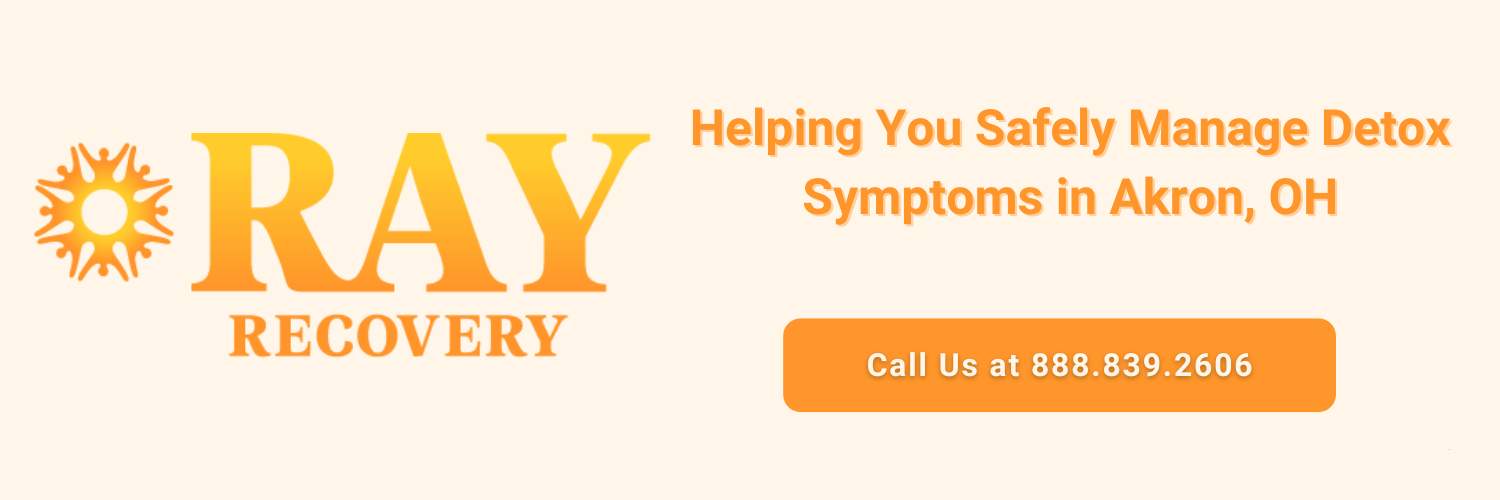Detox can be scary, especially when you don’t know what to expect. The physical and emotional symptoms can feel intense, unpredictable, and overwhelming, so it makes perfect sense that you’re here, trying to understand what’s really happening during this part of recovery.
The good news? With the right support, detox doesn’t have to be dangerous or unmanageable. In fact, it can be the first real step toward feeling like yourself again.
In this article, we’ll walk you through what detox actually is, how it affects your body and mind, how to recognize the signs that it’s working, and — most importantly — how to move through it safely and with support.
What Is Detox?
In substance-use recovery, detox is the body’s process of clearing out drugs or alcohol after prolonged use. During detox, the brain and body adjust to life without substances, often triggering withdrawal symptoms that range from mild to severe.
While detox is a crucial first step, lasting recovery requires more than just physical clearing — it’s about healing emotionally, too, with the right care and support.

The Difference Between Medical Detox and Going “Cold Turkey”
Detox can look very different depending on how it’s done.
Medical detox provides clients with supervision, care, and support as their body clears substances and adjusts to life without them. It’s designed to ease withdrawal symptoms and reduce risks, all while keeping clients safe and as comfortable as possible.
On the other hand, quitting substances suddenly — often called going “cold turkey” — can be dangerous. Without medical support, the body may react unpredictably, and in some cases, withdrawal can be life-threatening. That’s why professional detox is so important: it’s not just about getting substances out of your system, but about doing it safely and with support.
How Do You Know if Your Body Is Detoxing?
As your body begins the detox process, it often sends clear — and sometimes uncomfortable — signals that it’s working hard to heal. These symptoms are your body’s way of releasing the toxins and stress it has carried during substance use. While they can vary widely from person to person, many clients notice both physical and emotional changes as their system begins to reset.
These are not setbacks — they’re the signs that your body is detoxing and doing exactly what it needs to do to restore balance.
Common Physical Signs That Your Body Is Detoxing
Detoxing impacts nearly every part of the body, so it is expected that some physical symptoms will be signs of the internal reset your body is going through. Here are some common signs:
- Fatigue and low energy: Healing and restoring balance require a lot of energy, so you will normally feel tired during this process.
- Muscle aches or body pain: Tension, soreness, and inflammation may arise as your body clears toxins and begins repairing itself.
- Skin breakouts or rashes: Because your skin is a detox organ, you might notice acne or irritation as toxins are released through sweat.
- Headaches: These are often triggered by changes in hydration, blood flow, and reduced caffeine or sugar intake.
- Cravings: Your brain and body are adjusting to life without substances. Cravings are a common symptom, but they decrease over time.
- Insomnia or poor sleep: Your sleep cycle may be disrupted as your nervous system recalibrates.
- Increased sweating and urination: These are key ways your body expels toxins.
- Digestive changes: More frequent bowel movements, bloating, gas, or even diarrhea are typical as your gut adjusts. This is also a sign of your body expelling toxins.
Common Emotional and Psychological Symptoms of Detox
Beyond the physical symptoms of detox, emotional and psychological symptoms are also expected during this process:
- Mood swings and irritability: It is common to feel a wide range of uncontrolled emotions as your brain chemistry begins to balance out.
- Anxiety, depression, restlessness, or emotional heaviness: Without substances numbing the nervous system, you may feel unease, and some emotions may resurface until your brain adjusts.
- Brain fog and trouble concentrating: You may temporarily feel sluggish or unfocused at first until your brain can cleanse itself of all the toxins.
- Crying spells or emotional release: Many people feel more emotionally raw as part of the cleansing process.
- Emotional cravings: Cravings can be triggered by stress, sadness, or boredom.

How To Safely Manage Detox Symptoms
Detox is tough — there’s no way around that. But you don’t have to go through it alone, and you don’t have to guess your way through the process. Some ways to support your body during detox include:
- Drinking plenty of water
- Eating nourishing, balanced meals
- Getting the rest your body craves
- Creating a calm, low-stress environment
- Knowing what to expect as your body adjusts
At Ray Recovery, we understand just how intense detox can feel — physically, mentally, and emotionally. That’s why our programs are built to guide you through it safely and compassionately. You don’t have to tough it out on your own. We’ll walk with you every step of the way.
Frequently Asked Questions About Detoxing the Body
When Should I Seek Medical Attention During the Detox Process?
While some detox symptoms are expected, others can be dangerous and require immediate medical attention. If you’re detoxing on your own and begin experiencing seizures, hallucinations or delusions, severe dehydration, or signs of delirium tremens (DTs) — such as confusion, shaking, or rapid heart rate — don’t wait to get help.

Seek Professional Support and Dual Diagnosis Treatment for Substance Abuse and Mental Illness at Ray Recovery
At Ray Recovery, we understand that both substance abuse and mental illness are complex and unique for every individual. That’s why we offer treatment that is tailored to your particular needs.
For instance, we are experienced in:
- Restoring people from addiction to fentanyl, meth, cocaine, heroin, opioids, alcohol, and benzos
- Helping people manage mental health disorders such as anxiety, depression, bipolar disorder, (borderline) personality disorder, obsessive-compulsive disorder, and trauma
Whatever your story is, whatever demographic you come from, whatever substances you struggle with, and whatever mental illness has you in its grip, Ray Recovery wants to help.
Call us today to discuss treatment for substance abuse with a co-occurring mental disorder.
How Long Does Drug and Alcohol Detox Take?
Detox timelines vary depending on the person, how long the person used the substance, and the type of substance, for example:
- Alcohol: Symptoms may begin within several hours after your last drink and last up to 8 days.
- Short-acting opioids (e.g., heroin, certain painkillers): Withdrawal typically starts 8–24 hours after the last use and lasts 4–10 days.
- Long-acting opioids (e.g., methadone): Withdrawal may begin 2–4 days after last use and last up to 10 days.
- Benzodiazepines (e.g., Xanax, Valium): Symptoms usually begin 1–4 days after the last use and may last for months or longer if untreated.

What Are the Next Steps After Detox?
Once your body has cleared the substances, the real work of recovery begins: finding stability, exploring the deeper “why” behind substance use, and building healthier ways to cope, connect, and grow. That’s where ongoing support makes all the difference.
At Ray Recovery, we offer personalized care through Partial Hospitalization (PHP), Intensive Outpatient (IOP), and Outpatient (OP) programs — each one designed to meet you where you are.
Whether you need structure, flexibility, or simply a safe space to land, we’re here to walk with you, at your pace, every step of the way.
Even Though It’s Hard, Your Body Is Healing — Ray Recovery Is Here To Help
We must admit that detox is a hard process. But it’s also a sign of something incredibly brave — your decision to start healing.
You don’t have to have it all figured out, and you definitely don’t have to go through it alone.
At Ray Recovery, we understand how tough this journey can be, and we’re here to make sure you feel supported, seen, and cared for every step of the way. From the first signs of detox to the deeper work of recovery, we’ll walk with you with compassion, understanding, and a program that fits your life.
The content in this blog is not intended to be a substitute for professional medical advice, diagnosis, or treatment. Always seek the advice of your physician or other qualified health provider with any questions you may have regarding a medical condition.



